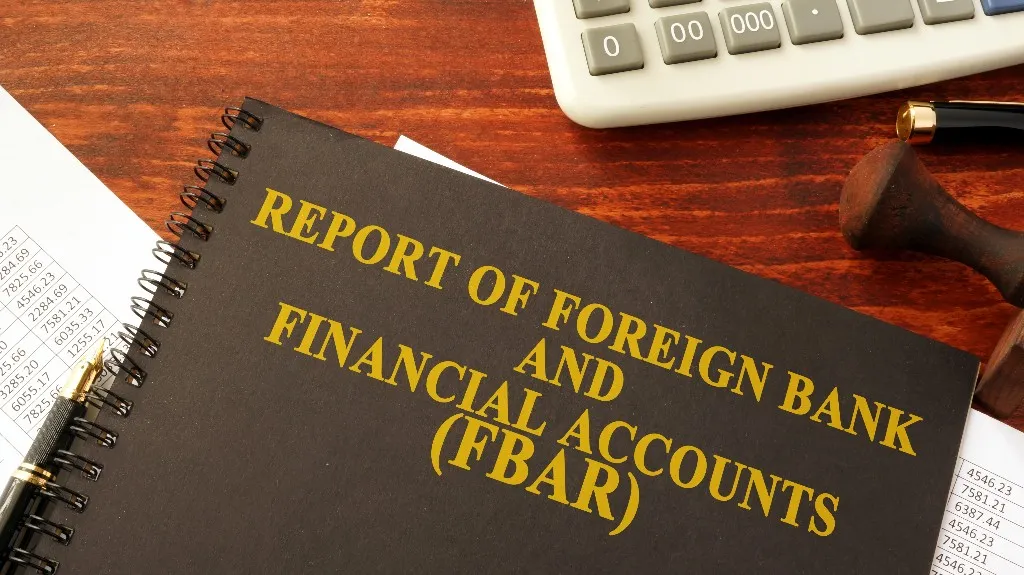Is Your Failure to File an FBAR Willful or Non-Willful Conduct?
Origins and Purpose of the Bank Secrecy Act of 1970

The Bank Secrecy Act of 1970 (BSA), also known as the Currency and Foreign Transactions Reporting Act, is a U.S. law requiring financial institutions to help government agencies detect and prevent money laundering. Congress passed this law to combat the misuse of financial systems for illegal purposes.
Enforcement of the BSA is primarily delegated to the Financial Crimes Enforcement Network (FinCEN), a bureau of the U.S. Department of the Treasury. FinCEN later entered into an agreement with the Internal Revenue Service (IRS)to assist in administering and enforcing the Act.
While the IRS is best known for collecting and enforcing tax laws under Title 26 of the United States Code, the BSA is codified under Title 31 and focuses on financial transparency, not tax collection. In fact, the two laws operate in very different ways. Tax laws protect taxpayer privacy and impose penalties for government breaches of confidentiality. By contrast, the BSA does the opposite—it requires individuals, businesses, and entities to keep records and file reports that can be accessed by domestic and international law enforcement agencies for criminal, regulatory, and intelligence purposes. FinCEN functions as the United States’ financial intelligence unit, investigating money laundering, tax evasion, terrorist financing, and other illicit financial activity.
Simply put: when money moves across borders, the U.S. government expects transparency.
Noncompliance with the BSA: Willful vs. Non-Willful Conduct
Section 5314 of the BSA requires certain U.S. persons—including citizens, residents, corporations, partnerships, limited liability companies, trusts, and estates—to file Form 114 (FBAR) with FinCEN annually if:
- The individual was a U.S. citizen or resident or doing business in the U.S. during the reporting period;
- The individual had foreign financial accounts with an aggregate balance exceeding $10,000 during that period; and
- The individual had a financial interest (for example held legal title or ownership), signature authority, or other comparable authority over the foreign financial account
So, what’s the problem here? Filing Form 114 is straightforward—there’s no filing fee, and the required information is clear. The real complication arises from human behavior: failing to file or submitting an inaccurate or false FBAR.
The key question in delinquent FBAR cases is whether the conduct was non-willful or willful. That distinction drives the outcome. Under U.S. law, culpability ranges from inadvertence to recklessness or knowing conduct. “Willful” generally includes knowing and reckless conduct, while “non-willful” generally means inadvertent or negligent conduct.
- A non-willful failure to file an accurate and timely FBAR can result in a civil penalty of up to $10,000 per report under 31 U.S.C. § 5321(a)(5)(B). In Bittner v. United States (2023), the Supreme Court ruled that the penalty applies per report, not per account.
- A willful failure can trigger penalties up to $100,000 or 50% of the account balance under § 5321(a)(5)(C). In Safeco Insurance Co. of America v. Burr (2007), the Court held that “willful” includes both knowing and reckless conduct. Willful violators also face potential criminal prosecution and imprisonment.
Factors Courts Consider in Determining Willfulness
When legal issues are cloudy, it’s best to start with the cloudiest—willful violations. Courts look to several factors to determine whether a taxpayer’s failure to file was willful under § 5321, including:
- False responses on Schedule B.
In United States v. Goldsmith, 542 F. Supp. 3d 1058 (2021), the court emphasized that taxpayers must answer “yes” or “no” to the foreign account question on Schedule B. For many courts, filing “no” while holding foreign accounts will be considered willful unless credible evidence—such as incapacity, illness, language barriers, or other serious impediments—shows otherwise. Courts have also stated that reliance on a tax adviser is rarely accepted as a defense.
The Fifth Circuit Court of Appeals, which includes Texas, applies the knowing and reckless standard to determine willfulness and follows similar reasoning. The more sophisticated or educated a taxpayer is, the harder it becomes to claim non-willfulness after signing a return falsely indicating no foreign accounts.

- Signing tax returns without review.
In Kimble v. United States, 141 Fed. Cl. 373 (2018), the court found that signing a return without reading it can constitute reckless conduct unless the taxpayer has an impediment or other credible explanation. Tax returns are filed under penalty of perjury, and courts expect taxpayers to review them for accuracy. - Failure to act upon learning of noncompliance.
In United States v. Ott, 441 F. Supp. 3d 521 (2020), the court held that failing to investigate or correct potential FBAR issues promptly can demonstrate willfulness. Once you discover an FBAR delinquency issue, it is critical to take prompt corrective action. Delay can undermine any claim that your conduct was non-willful. Additionally, seeking reassurance from non-lawyers that your conduct was non-willful rather than consulting a lawyer and pursuing a timely legal remedy can strengthen the government’s case that your conduct was willful.
Why Legal Guidance Matters
As these court cases demonstrate, “willful” conduct is complex and multidimensional. Evaluating all facts and circumstances, understanding statutes, interpreting case law, and keeping up with legal trends requires the expertise of an experienced tax attorney as these are legal problems—not merely accounting or consulting issues.
If you have delinquent FBARs or concerns about compliance, consulting a knowledgeable attorney promptly can help you understand your options and take corrective action.
This law blog is written by attorneys at Coleman Jackson, P.C., located at 6060 North Central Expressway, Suite 620, Dallas, Texas 75206, for educational purposes only. It does not create an attorney-client relationship between this law firm and the reader. You should consult with legal counsel in your geographic area regarding any legal issues impacting you, your family, or business.
Coleman Jackson, P.C. | Tax Law, Business Law, Immigration Law | English: (214) 599-0431 | Spanish: (214) 599-0432

